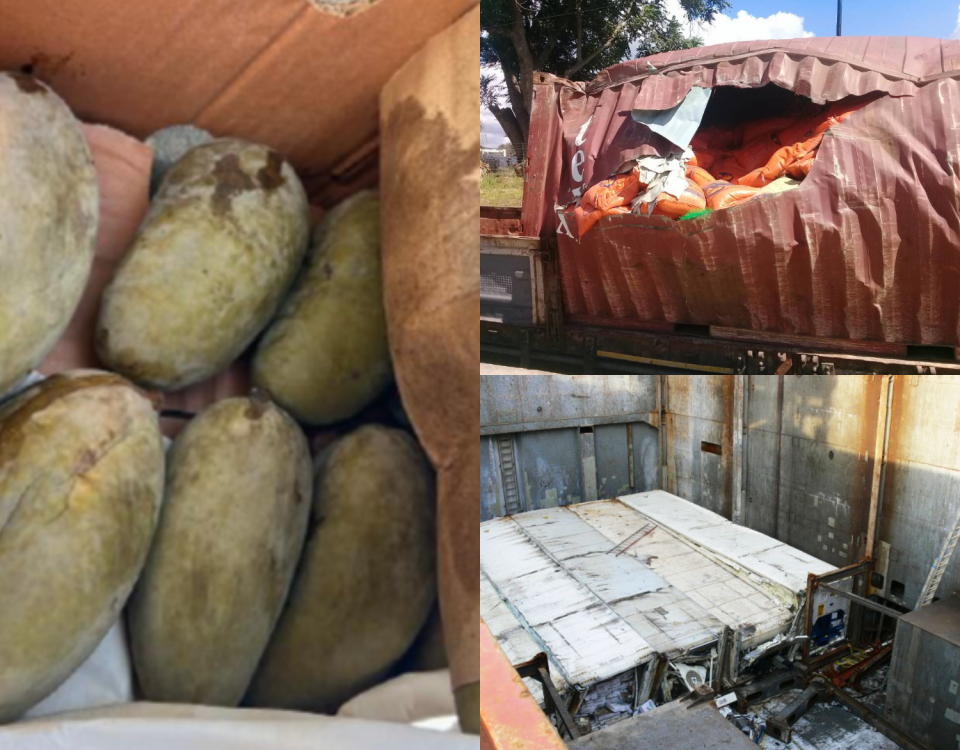Recovering Cargo Claims Without a Data Logger. Mission Possible.

The Four Essential Components of a Winning Cargo Claim Survey Report
June 2, 2023
Safeguarding Your Cargo: A Game Plan for Loading in Crappy Containers
June 9, 2023Damage to reefer cargo and claiming process is a frustrating experience for all exporters. While having a data logger to monitor transit temperature is ideal, there are still steps you can take to salvage cargo claim. In this blog post, we’ll explore practical strategies to safeguard damaged reefer cargo claim when a data logger is not available.
- The Importance of Pre-shipment Evidence
Harvest report, loading report, stuffing pictures and appropriate packaging evidence all proving cargo was loaded in sound condition and precooled at origin are extremely important to support any claim.
- Assessing the Damage and Documenting Evidence at the Discharge
Upon discovering damaged reefer cargo, it is crucial to assess the extent of the damage and document the evidence meticulously. Take photographs or videos of the affected cargo, capturing the damage from various angles. Additionally, gather any available supporting documentation, such as shipping documents, invoices, packing lists, and any other relevant records. Invite ocean carriers to attend joint survey. This evidence will be vital when pursuing a cargo claim.
- Notify the Carrier or Freight Forwarder Immediately
If you can send legal notice to carrier within 3 days after delivery – that is amazing! Promptly notifying the carrier or freight forwarder about the damaged reefer cargo is crucial. Provide them with detailed information about the incident, including the date, time, and location of survey, as well as a description of the damage. Communication should be in writing; email is sufficient to ensure a clear record of the notification.
- Seek Expert Opinion or Consultation
In the absence of data logger records, it may be beneficial to appoint cargo surveyor to confirm that the cause of the damage was attributes too excessive of power periods or reefer malfunction. Engage with legal experts experienced in handling cargo claims. They can provide with the claim defense strategy.
- Mitigate Losses
It is cargo interest’s obligation to mitigate transit losses. Depending on the extent of the damage, specific cargo, surveyor’s recommendations consider appropriate measures: segregation, repacking, salvage sale or destruction.
- Follow Up and Maintain Communication
Consistent and persistent follow-up is essential when dealing with cargo claims. Maintain regular communication with the carrier or freight forwarder, ensuring you have written records of all interactions. Be proactive in requesting updates on the progress of your claim and promptly provide any additional information or documentation they may require.
While a data logger provides invaluable data for assessing reefer cargo damage, it is still possible to settle a cargo claim without one. By promptly documenting the damage, notifying the relevant parties, mitigating losses, seeking expert opinions, and preparing a comprehensive claim, you can absolutely win your claim, even without a data logger. Remember to remain persistent throughout the process and maintain open lines of communication. With these strategies, you can navigate the challenging terrain of cargo claims and work towards receiving the compensation you deserve.
Recoupex is a hub of transport lawyers – experts in cargo claims. We assess your case quickly. We have successfully recovered claims from Maersk, Sealand, Hapag-Lloyd, Mediterranean Shipping Company – MSC, CMA CGM, and other carriers.



